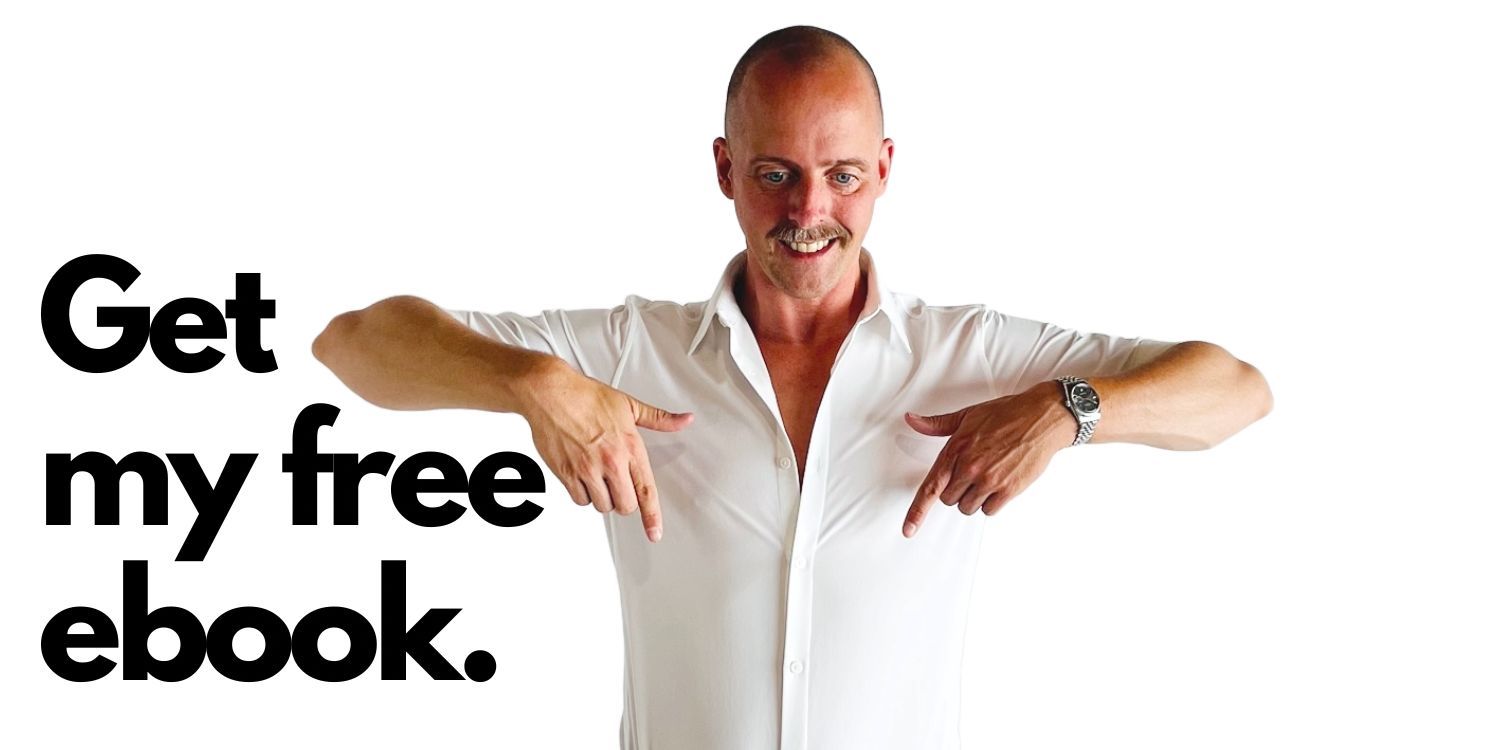The stages of self-acceptance most gay men go through
Jul 23
/
Rene Luisman
How can you accept yourself if you are convinced that you are not good enough? Not in the eyes of the other and especially not in the eyes of yourself. In this article I explain how to break this pattern.
In his book The Velvet Rage, the American psychologist Alan Downs describes the three developmental stages that gay men go through during their lives:
1. the phase where you are overwhelmed by shame
2. the phase in which you try to compensate for your shame
3. the phase in which you find your authenticity
Phase 1: Overwhelmed by shame
The first phase is the phase that often receives the most attention. The coming out; the moment when you make it known to the outside world that you like people of the same sex. For many gay men, this phase is formative for their personal development.
I myself was eleven years old when I realized that I differed from my father and brothers in terms of sexual preference. Growing up in a strict Christian family, I did everything I could to keep this secret hidden. In addition, I missed an example of how to hold my own in a world in which it is not normal for two men to love each other.
Phase 2: Compensating shame
After the coming-out, often comes the relief. Now real life can begin. The secret has been revealed. But what is the impact on a man's life if you lived with such a big secret for years as a child?
In this second phase, many gay men look for a way to compensate for the deep-seated shame from the first phase. One of the ways to do this is to always strive for approval from others. For example, by becoming extremely successful in your work, by making the most fantastic trips, by training yourself in the gym or by living more and more beautifully and luxuriously. A mostly unconscious search for quick confirmation. And when the satisfaction disappears again, you start looking for confirmation again. But because the inner confirmation is missing, all that remains is a feeling of emptiness and uncertainty.

In my search for how to accept myself, I kept coming back to the belief that I wasn't good enough. Not in the eyes of the other and especially not in my eyes. There was always something I could think of that was still missing to accept myself for who I was. And always there was that fear of getting caught...
Phase 3:Finding your true self
One way to break the exhausting pattern of validation is to examine your own beliefs. This process of reflection and self-examination takes courage. It is a process of facing your own fears and insecurities and learning how to endure them. This process is essential to ultimately be able to take the step to phase 3. A phase in which you can live freely and autonomously, without continuously getting entangled in patterns from the past.
Just like any relationship, the relationship with myself is also a process that needs constant attention. On good days, I find it easy to treat myself with kindness and love. On bad days, my internal judge points out to me what I condemn in myself and others. Now that I'm aware of this, I have a choice whether to pay attention to this voice or focus on the man I want to be.
Reflection questions:
Answering the questions below will help you strengthen your own authenticity.
Answering the questions below will help you strengthen your own authenticity.
-
What image have I developed of myself? As a husband, as a son, as a friend, as a partner or as a colleague.
-
Is the story I've formed about myself mostly positive, neutral or negative? How does this affect my behaviour?
-
With which eyes do I look at myself? My father's, mother's, or some other important Parent figure? And are these eyes kind, critical, pedantic, judgmental, etc.?
-
At the end of my life, when I look back at the person I was, how do I wish I had lived? What would I advise myself?
-
What do the above answers mean for my behavior from now on? What do I want to show more or less of myself?
You read an article by Gay Men Coaching
How I can support you:
- Self Love Course - Learn step by step how to build a positive self image.
- Men's Group - Find out how other gay men deal with issues such as intimacy and sexuality.
- Coming-out program - If you could use some support before, during or after your coming-out.
- Individual coaching - If you want to improve the relationship with yourself or others.
And more about me and my approach:
Follow me on:
Latest from our blog

Get in touch
-
Geestbrugkade 32, 2281 CX Rijswijk, Netherlands
-
contact@reneluisman.nl
-
Chamber of Commerce number: 59693908
-
IBAN: NL49 KNAB 0259 9752 22
Join Our Newsletter
Get monthly updates on news, articles, tips and more.
Thank you!
Gay Men Coaching © 2014 - 2025

with 5 powerful tools to feel confident
As a bonus you will receive a monthly e-mail with tips & inspiration. You can easily unsubscribe at the bottom of every newsletter.
